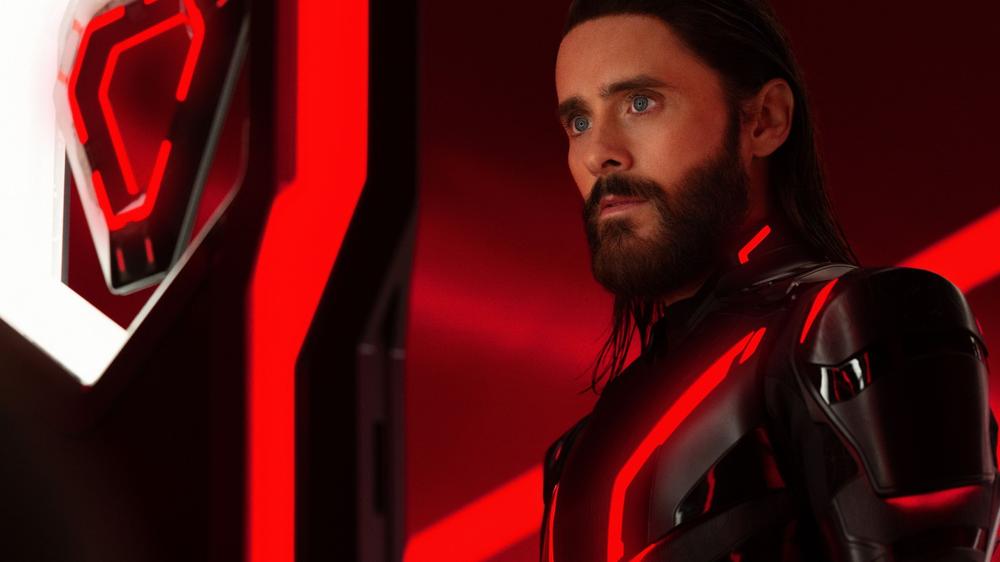Tron: Ares is a sequel that nobody asked for, and beyond some stunning visuals and a superb Nine Inch Nails score, the movie has little reason to exist.
Tron is a curious franchise that launched in the early 1980s, and initially delivered cutting edge special effects via a film that examined the rise of the computer by putting man in a machine.
That concept was more interesting than the movie itself, which is probably why it took decades for a sequel to emerge. And while 2010’s Tron: Legacy was a modest hit, it’s now best remembered for Daft Punk’s pulse-pounding soundtrack, as yet again plot was secondary to the vision.
It’s taken another 15 years for a threequel to hit screens, and Tron: Ares makes the same mistakes as its predecessors, by looking and sounding superb, but failing to deliver either human interest or drama.
What is Tron: Ares about?
Tron: Legacy set up a sequel in which human Sam Flynn (Garrett Hedlund) and computer program Quorra (Olivia Wilde) embark on an adventure in the real world. But that’s (almost) entirely ignored here, in favor of a fresh start involving warring corporations.
On one side of the conflict is Eve Kim (Greta Lee), CEO of ENCOM now the Flynns are missing in action, who is grieving for her dead sister (that’s about it in terms of character development), and believes the emergence of AI “isn’t so scary.”
On the other side there’s Julian Dillinger (Evan Peters), grandson of original Tron villain Ed Dillinger, who has a god complex, computer circuits tattooed down both his arms, and lofty plans to build a bridge between our world and the digital ‘Grid.’ But with a predictably basic ulterior motive; to build weapons for the military.
Using what amounts to a giant 3D printer, Dillinger crafts “the most sophisticated security program ever written” – digital super-soldiers who are strong, fast, and efficient, while if they are struck down on the battlefield, Julian can simply create another.
But there’s a major problem at the heart of his proposal – these computer-generated assets live for 29 minutes before crumbling to dust, which is useful in that it lends the movie a recurring ticking clock, but useless to Julian and his plans for world domination.
Tron: Ares becomes: Tron MacGuffin
Julian needs a solution, and it’s one that Eve Kim finds via movie MacGuffin ‘The Permanence Code,’ which changes the game by removing that time limit.
Much of the movie is therefore concerned with possession of that code, which precipitates a sequence that every Tron: Ares teaser and trailer has promised – namely Light Cycles in the real world.
The scene in questions sees ‘Master Control’ Ares (Jared Leto) and his second-in-command Athena (Jodie Turner-Smith) chase Eve and her motorcycle through a series of city streets, while leaping over traffic, and slicing cop cars in two.
From here-on-in the movie shifts between our world and digital plain as the Permanence Code changes hands, through a hi-tech heist, followed by a series of spectacular action sequences.
Skating the surface of sentience
In between those set-pieces, Tron 3 tells a story of sentience, through the central question of ‘what is a program’s purpose?’
Ares asks this early in proceedings when he realises his kind is “100% expendable,” which results in the character initially ignoring directives, and eventually going rogue.
He also comes to understand empathy through Eve, which triggers a brief and unorthodox buddy comedy as the pair of them team up to take down Dillineger. Which in turn leads to cringeworthy scenes where Ares embraces humanity through a love of the 1980s, and specifically the music of Depeche Mode.
Which is where the film’s central problem lies. AI potentially taking charge and reigning supreme is the existential crisis of this age, and there’s much to be mined from the subject, as films like Blade Runner, The Matrix, and Ex Machina have proved, as well as recent TV hit Alien: Earth.
But Jesse Wigutow’s script tackles the issue in the most superficial manner, skating the surface of those themes, before sticking characters back on Light Cycles for another round of eye-popping visuals. Which look good, but result in a film where style continually supersedes substance.
Is Tron: Ares good?
The first Tron movie was the tale of a software engineer going up against a corporation who stole his property, meaning the visuals were in service of a story you could relate to.
The third Tron movie is about tech billionaires doing battle with each other, which is much harder to empathise or sympathise with, making Ares a somewhat hollow viewing experience.
As overseen by director Joachim Rønning, it’s a feast for the eyes, while the Nine Inch Nails score by Trent Reznor and Atticus Ross perfectly complements those visuals, and frequently elevates proceedings.
Greta Lee makes a likeable lead, and does that Mark Hamill/Luke Skywalker thing of grounding the narrative by helping and encouraging the audience to believe the unbelievable.
But Jared Leto’s Ares is a dud, the movie doing little to make us like or care about the character, which is a major problem when his name is in the title, and the movie gradually transforms into his story.
Tron: Ares score: 2/5
Tron: Ares starts strong, while the music and visuals are superb. But when the novelty of those bells and whistles wear off, both story and characters aren’t strong enough to engage for two hours, making it feel less like a movie, and more akin to an overlong car ad or music video.

 Nintendo Reveals Mysterious Animated Short is Indeed a New Pikmin Tease
Nintendo Reveals Mysterious Animated Short is Indeed a New Pikmin Tease